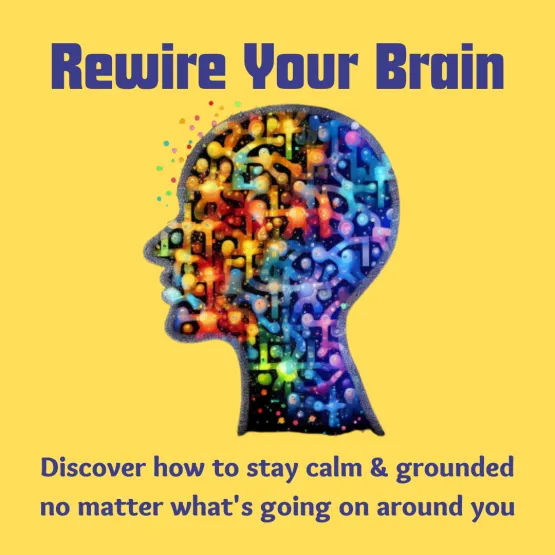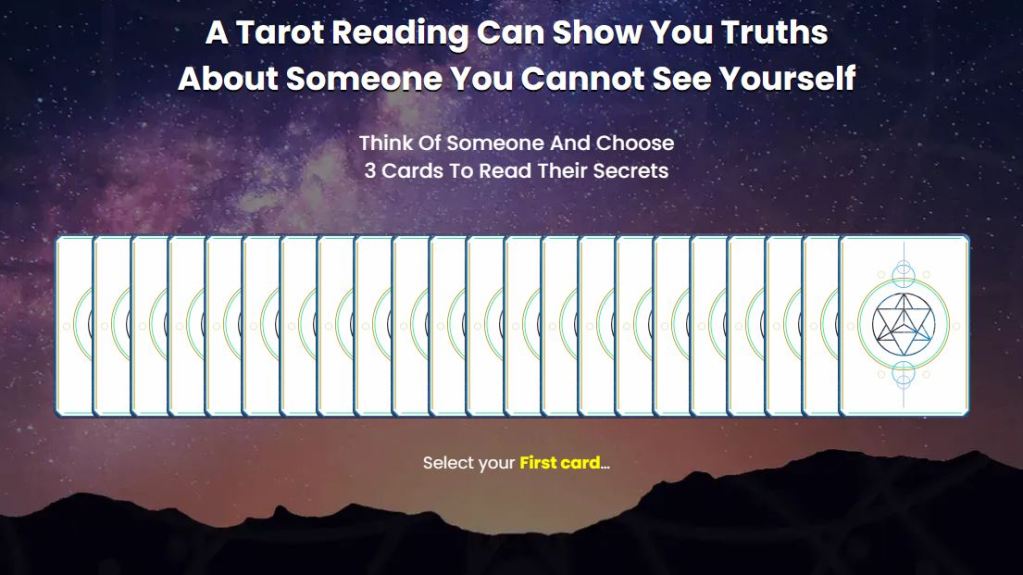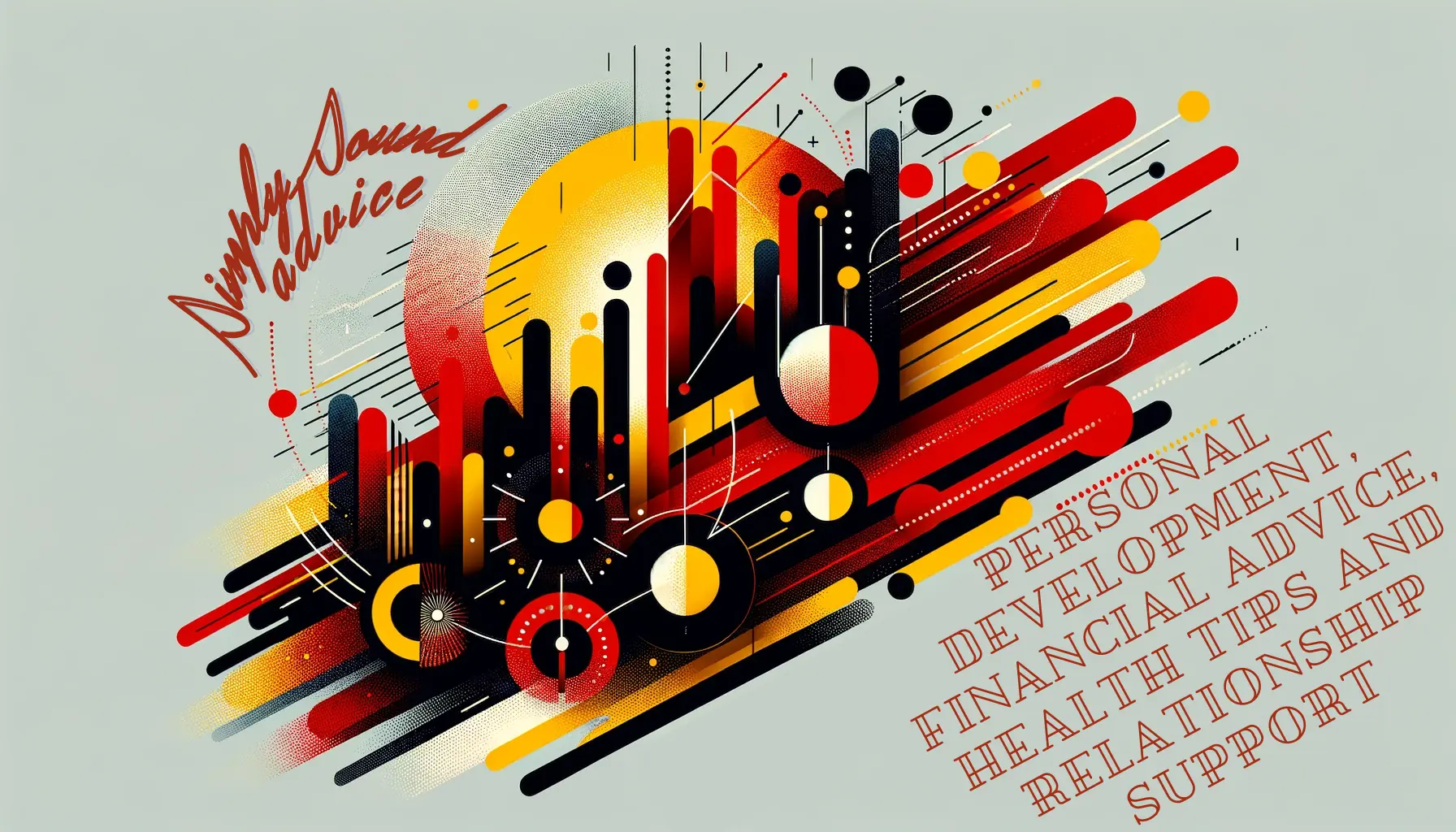- It is What it is; It Was What it Was.
- The Nature of Regret
- The Psychological Impact of Dwelling on Past Mistakes
- Embracing Regret as a Catalyst for Growth
- Common Relationship Regrets
- The Power of Acceptance
- Practical Steps to Let Go
- Finding Humor in the Past
- Lessons Learned: Turning Regrets into Growth
- Embracing the Present Moment
- Conclusion
It is What it is; It Was What it Was.
Embracing the Now: Navigating the Seas of Relationship Regrets
We’ve all been there. Lying in bed, staring at the ceiling, and being haunted by the ghosts of relationships past. Those “what ifs” and “if onlys” that play on a loop, reminding us of moments we wish we could rewrite. But what if there was a mantra, a simple phrase, that could help us find peace with our past? Enter the wisdom of “It is what it is; It was what it was.” This isn’t just a catchy saying—it’s a lifeline, a beacon of acceptance in the stormy seas of regret. Dive in with us as we explore the depths of relationship regrets, learn to laugh at our past blunders, and chart a course towards a brighter, regret-free future.
The Nature of Regret
Regret, a powerful emotional response that has the uncanny ability to transport us back to a moment, a decision, a choice not taken. It’s a universal experience, yet so deeply personal. In the vast landscape of emotions, why does regret hold such a significant position? And what happens when we let ourselves be consumed by the “what ifs” of our past? Let’s delve deep into the realm of this poignant emotion.

What is Regret?
Regret can be best described as a feeling of sadness, disappointment, or frustration about something that one has done or failed to do. It’s an emotional response to reflecting on missed opportunities or actions we wish we could undo. While often uncomfortable, it serves a pivotal function in our cognitive development and decision-making process.
- Cognitive Component: This involves the realization that a different action could have led to a more desirable outcome. For instance, thinking, “Had I taken that job offer in New York, I’d be in a different place right now.”
- Emotional Component: This pertains to the feelings of sorrow, disappointment, or even anger towards oneself due to the choices made or not made.
- Behavioral Component: This aspect of regret can influence our future actions based on the lessons learned from past mistakes. For instance, after experiencing the regret of procrastinating, an individual may adopt better time management skills.
We can observe that regret is an essential part of our introspective processes, serving as a mechanism that pushes us towards growth and better decision-making.
Why Do We Feel Regret?
The sensation of regret isn’t just a random occurrence; it’s deeply rooted in our evolutionary biology. Our ancestors who were able to learn from their mistakes and adjust their future behaviors had better chances of survival. Regret, in this context, becomes a sophisticated adaptive response, signaling to us what’s important and urging us to do better.
- Learning and Growth: Regret can serve as a potent teacher. It propels us to reflect on our decisions, ensuring we don’t repeat the same mistakes. This learning is instrumental in our personal and professional growth.
- Social Cohesion: Sometimes, our regrets stem from hurting others or not meeting societal expectations. Such regrets maintain social cohesion by reminding us of the importance of societal norms and values. According to a study in Nature Reviews Neuroscience, the experience of regret can reinforce social bonds and group dynamics.
- Value Clarification: Regret helps us understand what truly matters to us. For instance, if you regret not spending enough time with your family over prioritizing work, it signifies the value you place on family relationships.

The Psychological Impact of Dwelling on Past Mistakes
While occasional feelings of regret can be beneficial for introspection and growth, incessantly dwelling on past mistakes can have detrimental effects on one’s mental health.
- Anxiety and Depression: Overthinking past errors can become a gateway to anxiety and depression. According to the American Psychological Association, ruminating on regret can significantly contribute to these mental health disorders.
- Paralysis by Analysis: Continually analyzing what went wrong can make individuals fearful of making decisions, leading to missed opportunities in the present.
- Reduced Self-worth: Regret can erode self-esteem. Constantly revisiting past mistakes can make one feel inadequate, amplifying feelings of worthlessness or incompetence.
- Impact on Physical Health: Chronic regret can lead to sleep disturbances, reduced immune function, and even cardiovascular problems. A study published in the National Institutes of Health underscores how emotional stressors, like regret, can manifest in physical ailments.
Embracing Regret as a Catalyst for Growth
In the words of actor and comedian Jim Carrey, “You can fail at what you don’t want, so you might as well take a chance on doing what you love.” While it’s essential to recognize and learn from our regrets, it’s equally vital to not be enslaved by them. By understanding the nature of regret, its origins, and its impact on our psyche, we can harness its power to foster growth, make amends, and pave the way for a brighter, regret-minimized future.
So, the next time you find yourself lost in the maze of “what ifs,” remember that regret, when approached with the right mindset, can be more of a guiding star than a haunting specter. And hey, if all else fails, channel your inner Ryan Reynolds, and find a bit of humor in the past missteps – after all, they’ve shaped the incredible person you are today.

Common Relationship Regrets
In the tapestry of life, relationships, be it romantic, familial, or platonic, often leave the most vibrant imprints. With highs of joy come inevitable lows of misunderstandings, mistakes, and missed opportunities. Let’s traverse the all-too-familiar territory of relationship regrets and, while we’re at it, remember that perfect vision in hindsight is a luxury none of us possess in the moment.
Anecdotes from the Heart
- The Unsaid Feelings: Emily often replayed the scene in her mind. Those countless moments she’d been with her grandmother, sharing stories over cups of tea, and yet she never quite managed to utter the words “I love you.” It wasn’t that she didn’t feel it; it’s just that she always assumed there’d be another chance, another perfect moment.
- The Time Not Spent: Raj still remembers the soccer matches and dance recitals he missed, all in the name of ‘urgent’ work meetings. By the time he realized his daughter’s childhood was fleeting, those golden moments were memories he wasn’t a part of.
- The “Should-Have-Ended” Story: Lisa often found herself trapped in a loop of arguments and tears with Tom. Their love, once effervescent, had been overshadowed by toxicity. Every friend advised her to move on, but she held on, hoping against hope. When she finally mustered the courage to leave, she couldn’t help but wonder why she hadn’t done it sooner.
- Words Hurled in Anger: After a heated argument, James stormed out, throwing hurtful words at his brother. They never spoke for years. It was only at a family reunion that they reconciled, but the weight of those words and lost time still lingers between them.
- Missed Chances: Sophie had always admired Mark from afar, her college mate. While she rehearsed confessions in her journal, she never expressed her feelings. At their ten-year reunion, Mark admitted he’d felt the same. Both laughed it off, but with a hint of ‘what could have been’.

Hindsight: That Crystal-Clear, Uninvited Guest
There’s an old saying: hindsight is 20/20. And boy, isn’t it just the sassiest thing? With its impeccable timing, it breezes in right after we’ve made a decision, offering its unsolicited wisdom. “You should’ve seen it coming,” it teases. Or, “You missed the signs.” And while hindsight’s clarity is undeniable, it’s essential to remember that in real-time, our vision is often clouded by emotions, circumstances, and a dozen other variables.
But let’s add a dollop of humor to this. Imagine if hindsight were a person. Likely a well-dressed individual, with an ever-so-slight smirk, always arriving just a tad too late to the party, armed with “I told you so” stories. But here’s the fun part: we’d all unite in our collective eye-roll towards this know-it-all, sharing tales of how they’ve, yet again, offered their ‘wisdom’ a moment too late. Oh, hindsight! Always punctual in its tardiness.
Relationship regrets are an inescapable part of the human experience. They remind us of our vulnerabilities, our imperfections, and our deeply human longing for connection. And while hindsight might always have the upper hand with its 20/20 vision, it’s our forward-looking hope, resilience, and capacity to love and learn that truly define our journey.
So, the next time you find yourself face-to-face with Mr. Hindsight, offer a friendly nod, take the lesson, and move forward with the knowledge that every regret is just another stepping stone towards growth.

The Power of Acceptance
In the grand theater of life, there’s an emotion that doesn’t always get the spotlight but plays a pivotal role in our well-being: acceptance. From embracing our past mistakes to navigating the choppy waters of remorse, acceptance is the anchor that steadies our ship. Let’s delve into how accepting the past can liberate us and the transformative role of self-forgiveness in propelling us forward.
Embracing the Past: Liberation in Acceptance
Think of the past as an old photograph. It’s faded, static, and unchangeable. While we can spend hours gazing at it, lamenting the should-haves and could-haves, the image remains the same. It’s only when we put the photograph down and look ahead that we truly see the vibrant, dynamic world awaiting us.
- Breaking Chains: By accepting our past, we break free from its chains. The energy we once expended on “what ifs” and “if onlys” can be redirected towards creating a brighter, more fulfilling future.
- Learning and Growing: Acceptance doesn’t mean dismissing our past; it means understanding it. By recognizing and learning from our past actions, we transform regret into wisdom.
- Mental Well-being: Continual rumination can be mentally exhausting. Acceptance offers relief, reducing anxiety and stress associated with past events.

Self-Forgiveness: The Compass of Progress
If acceptance is the anchor, then self-forgiveness is the compass. It doesn’t merely point us forward; it ensures we move in the right direction with a heart free from burdens.
- Releasing Guilt: Self-forgiveness is an act of kindness towards oneself. It acknowledges that while we may have erred, we are more than our mistakes. By forgiving ourselves, we release the heavy baggage of guilt and self-reproach.
- Rebuilding Self-worth: Contrary to the notion that forgiving oneself is an act of ego, it’s genuinely an exercise in rebuilding self-worth. By recognizing our inherent value, we pave the way for positive self-esteem and confidence.
- Encouraging Reconciliation: Before mending bridges with others, we need to reconcile with ourselves. Self-forgiveness sets the stage for healthier interpersonal relationships, as it promotes understanding and empathy.
The tapestry of our lives is woven with threads of joy, sorrow, triumphs, and regrets. While we cannot unpick or change the past, acceptance and self-forgiveness empower us to weave a brighter, more beautiful future. By understanding and embracing our past, we not only free ourselves from its grip but also chart a course towards a journey filled with compassion, understanding, and boundless possibilities.
Remember, in the words of Alexander Pope, “To err is human; to forgive, divine.” And that divinity starts with forgiving oneself.
Practical Steps to Let Go
Imagine you’re holding a glass of water. It’s light initially, but the longer you clutch it, the heavier it feels, until it becomes unbearable. Regrets and past mistakes can be likened to that glass. The key to relief? Setting it down. But how does one do that? Dive in as we explore actionable steps to help you let go and journey towards inner peace.

Journaling: Conversations with Oneself
Journaling is akin to holding a mirror to one’s soul, providing insights into the deepest corners of our psyche. Through words, we can give form to our feelings, paving the way for healing.
- Regret Reflection: Begin by listing your regrets without judgment. Write freely, allowing your emotions to flow. This practice can help in externalizing and understanding your feelings.
- Lessons Learned: For each regret, pen down a lesson it has taught you. This reframing exercise can shift the perspective from loss to growth.
- Gratitude Entries: Each day, jot down three things you’re grateful for. Over time, this can help shift focus from past misgivings to present joys.
The “Letter You’ll Never Send” Technique
Sometimes, emotions can be too raw or situations too complex to confront directly. Here’s where this technique shines. By writing a letter you never intend to send, you grant yourself the freedom to express without constraints or repercussions.
- Address the Emotion: Start by addressing the regret or the individual associated with it. Allow yourself to express anger, sadness, or any emotion you feel.
- Seek Forgiveness: If appropriate, pen down a plea for forgiveness, from yourself or others. This symbolic act can be cathartic.
- End with Release: Conclude the letter by expressing your intention to let go and move forward. This can act as a ceremonial release of your burden.
- Disposal: Some find relief in physically disposing of the letter, be it through tearing, burning (safely), or burying, symbolizing the release of their emotional baggage.

Meditation and Mindfulness: The Path to Presence
Meditation and mindfulness practices anchor us to the present, teaching us to navigate our emotions without being overwhelmed by them.
- Guided Letting Go Meditation: There are numerous online resources, including apps and videos, offering guided meditations specifically designed to help individuals release past regrets.
- Breathing Exercises: Simple breathing techniques, like the 4-7-8 method, can help calm the mind and offer a fresh perspective.
- Mindful Moments: Dedicate a few moments each day to be entirely present. This could be during mundane activities like washing dishes or walking. Focus on the sensations, sights, and sounds, diverting attention from ruminative thoughts.
Letting go isn’t about denying or forgetting the past; it’s about embracing the present and crafting a future unburdened by bygones. Through journaling, expressive writing, and meditative practices, we can embark on a transformative journey from holding onto the weight of regrets to experiencing the lightness of acceptance and forward momentum. So, the next time you find yourself gripping that metaphorical glass, remember: the power to set it down and find relief rests in your hands.
Finding Humor in the Past
We’ve all been there: that cringe-worthy moment when a relationship misstep makes us want to hide under the bed and never emerge. But here’s the silver lining: every misstep, every awkward encounter, and every relationship blunder can be a potential source of humor. After all, life is too short to wallow in regret. Instead, let’s find the comedy in our past and share a good chuckle!

Relationship Blunders: A Comedic Goldmine
- The Accidental Text: Picture this: you’re ranting to a friend about a recent date. You meticulously detail every awkward moment, only to realize you’ve sent the text to your date instead! While mortifying at the moment, it’s a story that’ll have friends (and eventually you) in splits for years to come.
- The “Wrong Name” Debacle: In the heat of a romantic moment, you accidentally call your partner by your ex’s name. Oops! An instant mood killer then, but a hilarious anecdote for future gatherings.
- Overenthusiastic Introductions: Ever been so nervous that you introduced your partner as “my future husband/wife” on the second date? While it might send them running for the hills, it’s a comedic testament to the perils of dating jitters.
Laughter: The Best Relationship Therapy
Behind every comical anecdote lies a deeper truth: the importance of not taking life too seriously. Here’s why a hearty laugh at our past follies is essential:
- Lightening the Load: Laughter has a unique way of diminishing the weight of past errors. What once seemed like a colossal blunder becomes a mere blip on life’s radar.
- Building Bonds: Sharing comical relationship misadventures with friends or partners can be a bonding experience. It’s a testament to our shared human experience, filled with ups, downs, and laugh-out-loud moments.
- Perspective Shift: Laughter reminds us that everyone errs. By seeing the humor in our mistakes, we’re less likely to berate ourselves and more likely to embrace life with all its imperfections.
As the saying goes, “Comedy is tragedy plus time.” Our relationship missteps, no matter how dire at the moment, can morph into tales that evoke belly laughs in retrospect. So, the next time you reminisce about a relationship faux pas, remember to chuckle, shake your head, and appreciate the comedic tapestry of life. Because, in the grand scheme of things, it’s the ability to laugh at ourselves that truly matters.

Lessons Learned: Turning Regrets into Growth
In the grand tapestry of life, mistakes are not mere stains but intricate patterns that contribute to its beauty. Regrets, when seen through the lens of learning, become invaluable life lessons that guide our future and shape our character. Join us as we dive into the transformative power of past mistakes and the inspiring tales of individuals who turned their regrets into stepping stones for growth.
The Alchemy of Past Mistakes
It’s said that history, when not learned from, is doomed to repeat itself. However, when we reflect on our regrets, we possess the power to ensure that history evolves:
- Building Resilience: Mistakes, though painful, fortify our emotional and mental resilience. They teach us to bounce back, adapt, and emerge stronger.
- Refining Judgment: Past errors sharpen our discernment, guiding us to make informed decisions and reducing the likelihood of similar missteps in the future.
- Empathy Enhancement: Having faced the brunt of our mistakes, we develop a deeper understanding and compassion for others in similar situations. Our regrets make us more humane.

Inspiring Journeys: From Regret to Renewal
- Michael’s Misadventures: In his early twenties, Michael made a series of financial blunders, leading to debt and heartache. However, instead of being bogged down, he took charge, educated himself about financial management, and started a blog to help others avoid the pitfalls he fell into. Today, he’s a renowned financial advisor, turning his regret into a mission to educate.
- Linda’s Lost Years: Linda regretted not pursuing higher education in her younger days. But at the age of 50, she decided to enroll in college, proving it’s never too late to correct course. Today, she’s an advocate for adult education and a testament to the power of second chances.
- Raj’s Relationship Remorse: Having lost a close friend due to a petty argument, Raj spent years ruminating over the lost relationship. This regret propelled him to start a community group focusing on conflict resolution and effective communication. He transformed his personal loss into a beacon of hope for many facing relationship issues.
Regrets, though often seen as shadows of our past, hold the potential to illuminate our future. When approached with reflection and a desire to grow, these seemingly negative experiences can foster wisdom, resilience, and a renewed sense of purpose. As the poet Rumi wisely said, “The wound is the place where the light enters you.” So, embrace your regrets, for they are not mere wounds but windows to growth and transformation.
Embracing the Present Moment
Life, in its essence, unfolds in the present. Yet, many of us often find ourselves shackled to the past, replaying old tapes of regrets, and missing out on the vibrant tapestry of the “now.” But what if we shifted our perspective, focused on the current moment, and savored each second with the people we cherish? Let’s delve into the significance of living in the moment and how it can transform our relationships and overall well-being.

The Perils of Dwelling in the Past
Living in the past is akin to trying to drive forward while constantly looking in the rearview mirror. It’s not only distracting but also prevents us from navigating the road ahead effectively. Here’s why it’s hazardous:
- Missed Opportunities: Focusing on what was, we often overlook what is. We miss out on new experiences, conversations, and connections that are happening right in front of us.
- Stunted Growth: Continually ruminating on past regrets can hinder personal growth. It keeps us trapped in old patterns and prevents us from evolving and adapting.
- Relationship Strain: Living in the past can strain current relationships. Partners or friends may feel unappreciated or overlooked if we’re always dwelling on previous relationships or mistakes.
Tips for Staying Present
Now that we’ve recognized the pitfalls of being past-focused, how do we shift our attention to the present? Here are some strategies to help anchor ourselves in the “now”:
- Practice Mindfulness: This is the art of being fully engaged in the present moment. It can be as simple as savoring the flavor of your morning coffee or truly listening when someone is speaking to you.
- Gratitude Journaling: Each day, jot down things you’re grateful for. This practice shifts focus from what we lack or regret to what we have and cherish.
- Digital Detox: Occasionally, take breaks from electronic devices. This helps to reduce distractions and fosters real-life, in-the-moment interactions.
- Breathing Exercises: Taking deep, intentional breaths can center and ground us, pulling our attention back to the present.
- Engage in Activities: Participate in activities that require full attention, like dancing, painting, or playing a musical instrument. These acts naturally cultivate presence.
The beauty of life lies in its transient nature, with each fleeting moment holding the potential for joy, learning, and connection. By embracing the present, we not only enhance our own lives but enrich the lives of those around us. Remember, the sun doesn’t shine in the past or the future; its warm, golden glow is in the here and now. So, unshackle yourself from bygones and bask in the radiant light of the present moment.

Conclusion
In our journey through life, it’s easy to get entangled in the spiderwebs of regret and miss out on the present moment’s splendors. As we’ve journeyed together through the realms of understanding regret, finding humor in past mistakes, and embracing the present, let’s keep one mantra close to our hearts: “It is what it is; It was what it was.”
This simple yet profound phrase reminds us that the past, with all its imperfections, has shaped us. Instead of resisting it, we have the power to accept, learn, and grow from it. Our mistakes, our regrets – they’re not burdens but lessons, each one adding a unique thread to the tapestry of our life.
As you continue your own journey, I encourage you to reflect on your own regrets, not with disdain but with acceptance and a keen eye for the lessons they’ve imparted. And as you forge ahead, remember to live in the now, cherishing each moment and relationship as they come.
But the conversation doesn’t stop here. Your stories, your experiences, they matter. I invite you to share your own tales of letting go, of finding peace amidst regrets, and how you’ve transformed past mistakes into growth opportunities. Let’s create a community where we can learn from one another, finding strength in shared experiences and hope in collective wisdom.
So, what’s your story? How have you turned regret into a beacon of growth? Share, inspire, and let’s embark on this journey of acceptance and growth together. Remember, the path forward is illuminated not by the shadows of our past, but by the lessons we draw from them.
Do not forget to check out all of our exciting free tools! Calculators, quizzes and downloadable checklists all for free.















